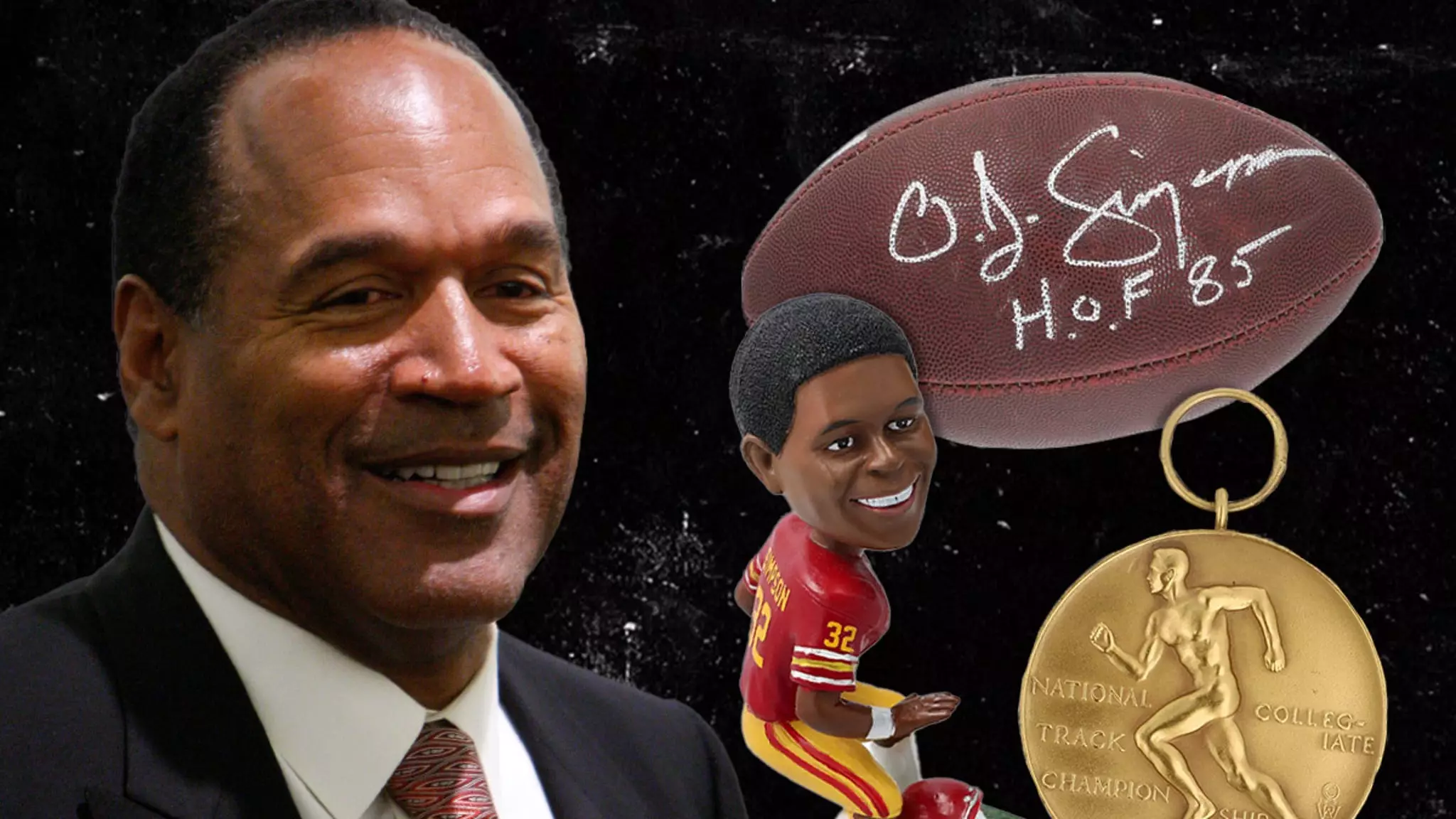The recent auction of O.J. Simpson’s memorabilia has unveiled a trove of items that carry profound historical significance and personal anecdotes. Kicking off late Wednesday, this auction isn’t just about tangible possessions; it’s a glimpse into the multifaceted life of a figure who remains a subject of intense public fascination. Each item tells a story, echoing both triumphs and controversies that defined Simpson’s life—from his glory days as a football legend to his tumultuous journeys through the judicial system.
Among the auction highlights is a signed photograph featuring O.J. alongside former President Bill Clinton. Starting at a modest $100, this piece attracts those intrigued not just by Simpson, but also by his connections to power. Such memorabilia holds potential value for collectors, signaling an intersection of celebrity culture, political history, and the complexities of fame. Equally compelling is the signed Heisman USC poster, also priced at $100, which encapsulates Simpson’s athletic prowess during a time when he stood as a paragon of sports excellence.
A Personal Connection to the Kardashian Legacy
Perhaps one of the most intriguing pieces is Robert Kardashian’s signed living Bible, set at a striking $2,500. This item symbolizes the intimate links between Simpson’s life and the Kardashian family, who have become cultural icons in their own right. It serves as a reminder of the friendships forged and the bonds that existed amidst tumult. Handwritten grievances from Simpson and an unfinished manuscript discussing Bruce (Caitlyn) Jenner and the Kardashians further amplify this connection and reflect the notable intertwining of lives that transcended both personal and public domains.
It’s fascinating to witness how memorabilia can encapsulate intimate journeys within a broader social narrative. These artifacts aren’t simply collectibles; they provide context for our understanding of celebrity, identity, and the consequences of public scrutiny.
Legacy and Controversy
The auction’s purpose, as articulated by Malcolm LaVergne, the special administrator of Simpson’s estate, is to address outstanding debts following Simpson’s death last year. This brings forward a complex layer of financial intrigue surrounding the event—one that underlines the underlying issues of legacy that often accompany figures enveloped in controversy. The decision by Simpson’s children not to object to the auction paints a picture of acceptance or resignation, hinting at the complicated legacy left behind by their father.
O.J.’s California driver’s license, priced at $500, offers a tangible connection to his past and the constraints of time. Its expired status serves as a metaphor for Simpson himself—once a celebrated athlete now forced into the margins of public discourse. The absence of items such as Simpson’s deathbed from the auction list speaks volumes. It suggests an attempt to curate a narrative focused more on legacy than on the inevitable end, preserving a sense of dignity even amid financial necessity.
A Collector’s Dream or a Tainted Treasure?
As bidding ramps up, the auction raises poignant questions about the nature of memorabilia associated with divisive figures. Are these items expressions of fascination, defiance, or mere cash-grabs? There’s a peculiar contradiction in bidding for pieces belonging to someone whose life has been both celebrated and vilified. Each item holds the potential to ignite discussions about celebrity, morality, and the very fabric of American culture. In this auction, participants are not just purchasing objects; they are engaging with an enduring legacy that elicits excitement and ethical dilemmas in equal measure. Happy bidding, indeed!

